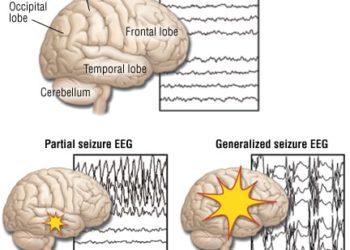Fish oil lowers seizure frequency in drug-resistant epilepsy
1. A daily low-dose fish oil regimen was associated with fewer monthly seizures in patients with drug-resistant epilepsy.
2. High-dose fish oil regimen was paradoxically not associated with a lower seizure frequency.
Evidence Rating Level: 1 (Excellent)
Study Rundown: Approximately 1 out of every 5 epilepsy patients have drug-resistant epilepsy (DRE), defined as epilepsy refractory to treatment with even two anti-epileptic drugs. DRE is a major contributor to increased morbidity and mortality among seizure patients and accounts for a large proportion of health care costs associated with epilepsy. While alternatives to anti-epileptic drug (AED) therapies, such as herbal supplements, diet modification, and vagal nerve stimulation, are employed for these patients, the number of those undertreated remains high. This study assessed the reduction in seizure frequency among DRE patients taking fish oil and found that low but not high-dose fish oil resulted in reduction of seizures by a third compared to placebo. The low-dose treatment group showed high heterogeneity, with one fourth showing a drastic reduction in seizure frequency (<50%).
This study supports a new adjunct treatment for DRE, though the small size of enrolled patients should be interpreted as preliminary evidence for treatment efficacy. Further, this study was unable to report on the efficacy of fish oil treatment by patient age, which is especially important as patients under 30 years old tend to have increased mortality from DRE compared to patients over 60 years old. Lastly, this paper was also unable to account for the selective decrease in seizure risk among low-dose versus high-dose fish oil, a discrepancy that seems to be consistent across clinical trials of fish oil for cardiac disease and depression. Nonetheless, this paper makes a strong argument for a multi-center, double-blind, clinical trial studying the efficacy and safety of fish oil treatment in DRE patients.
Click to read the study, published today in the Journal of Neurology, Neurosurgery, and Psychiatry
Relevant Reading: Omega-3 Fatty Acid Supplementation in Patients With Chronic Epilepsy
In-Depth [randomized controlled trial]: 16 female and 8 male patients (average age = 33; 8 patients <30yo) with DRE were enrolled in this double-blind, 3-period crossover study. Each patient received placebo, low-dose (1080 mg), or high dose (2160mg) combined docosahexanoic acid and eicosapentanoic acid for 10 week durations with a 6 week washout period between each regimen, representing a 42 week study. Each patient had failed at dual AED treatment, had >3 seizures monthly, and had good AED compliance prior to beginning the study. During the course of study, no changes were made to patients’ AED regimen. Patients on low-dose fish oil had a 33.6% reduction in seizure frequency (p = .02) compared to when these patients took high dose fish oil or placebo, which were statistically indistinguishable. Of the 20 patients who finished the trials, 25% on low-dose fish oil had a more than 50% reduction in seizure frequency, compared to 15% on high-dose and 0% on placebo. Two of the 20 patients had no seizures on low dose fish oil. While no adverse effects of fish oil treatment were noted, one patient died of sudden unexpected death in epilepsy during the course of the study.
More from this author: Suicide Tourism in Switzerland, Decreased facial expression variability linked with serious cardiac disease, HIV infection may protect against multiple sclerosis, Social Cohesion May Reduce Heart Attack Risk
Image: PD
©2012-2014 2minutemedicine.com. All rights reserved. No works may be reproduced without expressed written consent from 2minutemedicine.com. Disclaimer: We present factual information directly from peer reviewed medical journals. No post should be construed as medical advice and is not intended as such by the authors, editors, staff or by 2minutemedicine.com. PLEASE SEE A HEALTHCARE PROVIDER IN YOUR AREA IF YOU SEEK MEDICAL ADVICE OF ANY SORT.







